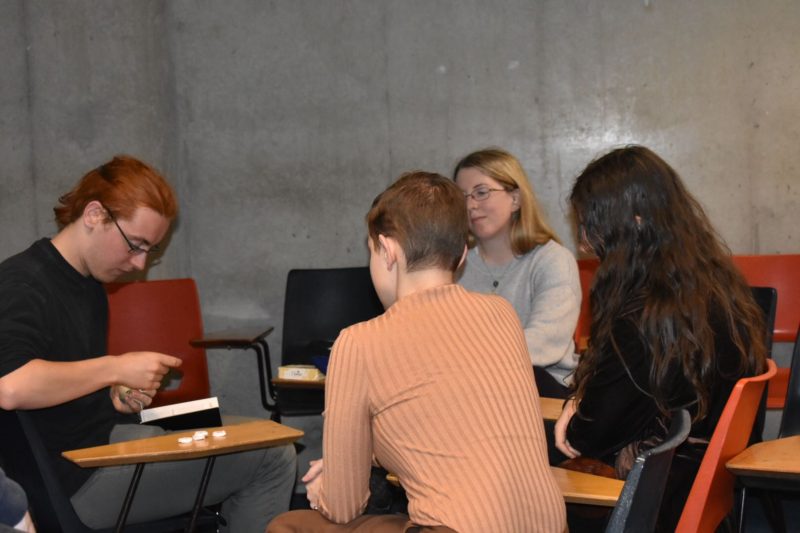
My mother warned me not to lose touch with my spirituality when I returned to Trinity this year, but I doubt an evening with DU Pagan Society was what she had in mind. The mention of “tarot readings” brings to mind the adverts at the back of newspaper magazines, offering the chance to see into your future through a phone call for a mere €2.60 per minute.
After attending the society’s introduction to divination workshop, while still sceptical, I realised that there was more to paganism than just horoscopes.
Offering a brief introduction to the basic terms of divination, the society’s Chair, Ralph Moore, was keen to debunk some of the popular misbeliefs around his religion. Divination “is not necessarily foreseeing the future or prophesying”, he said. “It is the uncovering of information through mystical and magical means.” Referring to tarot readings and runes specifically, he said that they can be used as a tool to make decisions. This is something that I had not considered before, and I was intrigued as another member, Sé Ó’hÊidhin, pulled out a set of tarot cards to give me a reading.
Three cards are drawn from the set of 78, relating to the past, present and future respectively. You can ask the reader for a specific piece of advice or simply get a general reading. I was bemused when Ó’hÉidhin patted the bag to rid the cards of the bad energy they might have picked up while sitting in a bag at freshers’ fair all day. The Seven of Pentacles represented a past of confusion and uncertainty, while the Three of Cups meant that I am currently in a state of coming to terms with where I am in life. If the Six of Wands is anything to go by, some encouraging news is coming in my future.
Being in college is an uncertain time for all of us, as we are in a state of flux from one year to the next, moving from place to place and module to module. In this respect, I remained sceptical about the usefulness of tarot cards after the workshop as my reading offered me nothing I hadn’t already heard from my tutor at the start of first year.
Next was the chance to have my runes read by Moore. The tradition with runes is to make your own, so Moore’s set consisted of a set of flat circular pieces that he modelled himself out of clay. Each was intricately inscribed in red with a letter of the Elder Futhark alphabet. My rune reading, from what I could tell, involved another move from uncertainty to opportunity, so I learned nothing new from this.
Overall it was an enjoyable, if somewhat bizarre, experience. Once I got over the oddity of the setting, I learned a lot about the old traditions and culture surrounding modern paganism. Spellcraft is real, and if you lose or damage your wand, replacing it is no easy task. You have to ask a tree and if the tree gives you bad vibes, move on quickly!
Moore and Ó’hÉidhin also offered interesting perspectives on the relevance of paganism to the modern environmentalist movement. The Catholic focus on the afterlife is not relevant, according to Ó hÊidhin: “We are part of this world, not separate from it. This world is important and we have responsibilities now.” While I was not tempted to further my pagan experience, the evening offered an interesting insight into a different way of thinking. I always associated paganism with the past, but I now realise that it is relevant to the present. They plan to hold talks, workshops and ritualistic celebrations throughout the year, so whether you are a dedicated Wicca or a non-believer, they will be delighted to welcome you and help you learn more.






